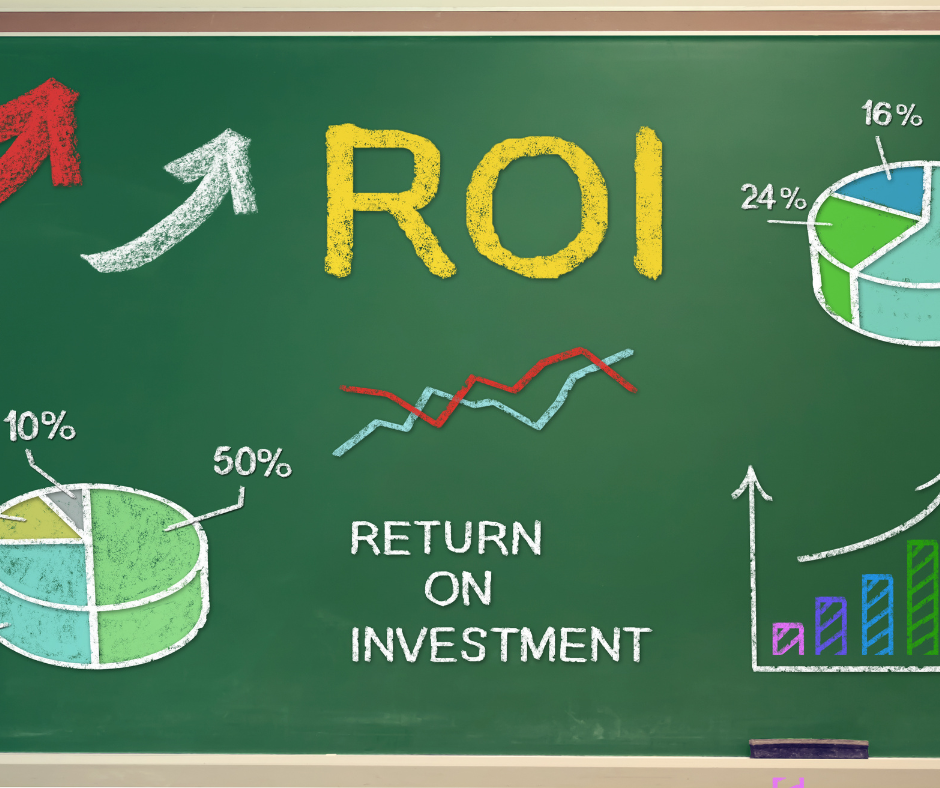Are you constantly stressed, overwhelmed, and feeling like you’re stuck in a never-ending cycle of unproductive habits? Does your workday leave you mentally exhausted, unable to manage your time effectively, and struggling to keep up with your responsibilities?
If so, you’re not alone. Many accountants find themselves trapped in what I call “Accounting HELL.
Today, I want to delve into this concept and offer solutions to help you break free. Inspired by Shari Levitin’s book “Heart and Sell,” which blends brain science with sales much like I do with accounting on this podcast, we’ll explore how you can overcome these challenges.
In the book she explains, “Neuroscientists have discovered a part of the brain they call the “default mode network.” We all have default tendencies to overcome. These are the repetitive or destructive – and usually unconscious – behaviors that prohibit you from taking helpful action.”
As I’ve shared on this podcast, that default mode is the lower, primitive brain, or what I refer to as the Toddler. It’s in charge 80 – 90% of the time without us realizing it.
What the author, Shari Levitin, goes on to explain is that when we are tired, overwhelmed, stressed, or distracted (ie, most of a typical accountant’s day), our default mode takes over. To sum this up, she uses the acronym “HELL.”
In the acronym HELL, H is for Habits, those routines and behaviors we do automatically. They can either help us or hold us back.
For example, sticking to outdated methods or delaying important tasks can affect our productivity and efficiency. This default mode, when it applies to habits, is like the definition of insanity – doing the same thing over and over, but expecting different results.
The E in HELL stands for Ego, or that feeling of knowing best. This is a common trap for accountants. Because we’re so smart, we also happen to have very smart excuses or justifications for why we do what we do, which makes it difficult to be open to doing things differently.
For example, many times I speak to accountants who want to argue for their limitations. In other words, they’ve done unhelpful things a certain way for years, but their ego won’t let them give up their old ways, even when I explain a much better way.
The L in HELL is for Lack of Knowledge. Even with all the advanced knowledge and continuing education that we have, we still lack the most important knowledge that no one teaches – how to manage our brains.
For example, every coaching client I’ve ever worked with tells me at the end of The Smarter Accountant 6-week program, “This is life changing. Why wasn’t I taught this sooner? This would have been much more helpful than a lot of the other accounting knowledge I had to learn.”
The final L in HELL is for Laziness. Now, don’t tune me out because as an accountant, I’m sure you work hard and you’re very busy, but you also have to recognize when you’re being busy with the wrong things; when you’re procrastinating or when you’re not managing your time effectively.
For example, if you are working off a to-do list rather than taking a few extra minutes to plan and calendar your time, that’s being lazy. Or if you’re planning your time but not following through on your plan no matter what, that is a lack of focus and commitment, additional signs of laziness.
So, if you have fallen into accounting HELL – having bad habits, letting your ego be in charge, not understanding how to manage your mind, and not being purposeful with your actions and your time – don’t worry, there’s a way out.
Awareness is key. By recognizing these challenges and being honest with yourself, you can climb out of accounting HELL and move towards an easier accounting career.
Now let’s dive into each aspect of accounting HELL.
Breaking Bad Habits
The H in HELL stands for Habits which means you need to consider the things you do automatically, like checking emails as soon as you wake up or leaving important tasks until the last minute. These are habits, and some might be holding you back in your accounting work.
For example, relying solely on to-do lists to manage your workload instead of learning a much more effective way to manage your time. I see this habit all the time with accountants, but once they learn The Smarter Accountant Time Management Program and change this habit, they’re amazed at how much more time they actually have.
Being aware of and breaking bad habits is crucial if you want to have a successful accounting career. The truth is that, if left unaddressed, bad habits lead to more stress, lower productivity, and wasted time and money.
The issue though is that our brain LOVES habits; it loves doing things that are familiar. Why? Because it doesn’t take much effort or mental energy.
That’s why you have to be willing to look at your habits and decide whether they’re helpful or not. Just because you’ve always done things a certain way doesn’t mean that way is useful.
Thankfully, when you break any bad habits, you can work more efficiently, accurately, and happily. Plus, it opens up chances for growth and new ideas.
Letting Go Of Your Ego
The E in HELL stands for Ego, or that inner voice telling us we always know what’s best. It’s a common trap for accountants because, let’s face it, we’re usually pretty smart.
With our intelligence often comes a sense of pride in our abilities, and that can make it hard to admit when there might be a better way to do things. We’re also surrounded by other smart accountants doing similar things so we believe that that’s just the way things are.
For example, believing that busier times like tax season are stressful, working later than you planned, not leaving work at work, procrastinating, having an inbox that’s overflowing, and not being able to set and stick to boundaries. If you can relate to any of these but have normalized them without being willing to learn a better way to handle them, that’s your ego getting in the way.
You may secretly wish things could change and then someone like me comes along and suggests a new approach that could eliminate stress and overwhelm, help you to be more productive, show you how to better manage your time, teach you how to have more confidence, and help you set and stick to boundaries.
Instead of embracing this opportunity for growth, your ego kicks in. You start listing all the reasons why your current method works just fine, ignoring the potential benefits of change.
I’ve seen it time and time again in my conversations with accountants. They’re so attached to their familiar routines and methods that they resist any suggestion of change, even when it’s clear that doing things differently could lead to better outcomes.
So, it’s essential to recognize when our ego is getting in the way and be willing to set it aside for our own good. By being open to new ideas and approaches, we can break free from the constraints of our own egos.
The Most Important Thing You Could Learn
The first L in HELL stands for lack of knowledge. As an accountant, I know you have a lot of knowledge or you wouldn’t be doing the work you do.
However, despite all the studying, training, and continuing education we do as accountants, there’s one thing that should be taught but isn’t: how to manage our own minds.
As I discussed on this podcast, this is the place where brain science meets accounting. If you haven’t already listened to episode #2, I suggest you go back and listen to it or relisten to it because what I explain is that we spend years in school, learning about debits and credits, tax laws, and financial reporting, but along the way, nobody teaches us how to have an easier accounting career.
For example, when an accountant takes The Smarter Accountant Quiz and discovers the ways that they’ve been underutilizing their accountant brain, they come to me, trying to figure out how to address their issues. They’ve often been an accountant for years and have never seen a way to have the accounting career they secretly want but haven’t been willing to admit.
Thankfully, once they’re willing to learn how to manage their minds, they realize that this knowledge would’ve been way more helpful early on in their career. They discover that when they learn how to manage their minds, they’re able to manage everything else.
I’ve worked with employees, entrepreneurs, partners, and firm owners and they all say the same thing, “Why aren’t we taught this sooner?” I tell them, that’s why I wrote my book “The Smarter Accountant” because no one is teaching what I teach in any classroom, CPA exam prep course, or CPE seminar.
The hard truth is that if you want to get out of accounting HELL, you have to be willing to learn how to manage your mind. When you do that, you’ll be able to have an easier and more sustainable accounting career.
Overcoming Laziness
The final L in HELL is for Laziness. As I said before, I’m not saying you don’t work hard or that you’re not busy all the time. But what I am saying is that there are many ways to be lazy without realizing it.
For example, as accountants, we’re often juggling many tasks and responsibilities. However, being busy doesn’t always mean being productive.
In fact, if you constantly think you’re busy or tell others how busy you are, you’re actually slowing down your productivity. How? Because believing that you’re busy creates feelings like stress, overwhelm, and pressure.
Think about the last time you thought about how busy you are – how did that thought make you feel? It probably made you feel stressed, overwhelmed, or under pressure.
And what happens when you feel stressed, overwhelmed, or under pressure? Unproductive actions like not managing your time effectively, not prioritizing, procrastinating, working on easier things, checking email even when it’s not the scheduled time to check it, and complaining.
Another common sign of laziness that I see with us as accountants is making plans but not sticking to them. The truth is that we love the idea of a good plan, but when it comes to following through on the plan no matter what, that’s when we fall short.
For example, maybe you set aside time for specific tasks but find yourself getting distracted or putting things off. This lack of focus and commitment will hold you back from reaching your goals and getting things done efficiently.
So, while it’s natural to feel busy and overwhelmed at times as an accountant, it’s essential to be mindful of how effective you are with your time. By avoiding procrastination, staying focused on your priorities, and being willing to learn a more effective way to manage your time, you can overcome laziness and have an easier accounting career.
Becoming a Smarter Accountant: Getting Out Of HELL
So here’s what I hope you get out of this episode – in order to have an easier accounting career you have to give something up. What are you willing to give up? Let me share how a few clients recognized that they had fallen into accounting HELL and what they were willing to give up so they could get out.
One of my clients is a CPA who always waits until the end of the week to reconcile accounts, often resulting in a rush to meet deadlines and increased stress. She was frustrated with this habit, but didn’t know how to get out of it.
After working together, she recognized when her brain had become attached to that unhelpful habit and she decided to give up waiting until the last minute. Instead, she decided to override the old habit by committing to a new routine of reconciling accounts daily.
At first, her brain was not on board, but she just kept noticing the urge to do it the old, unhelpful way, and instead chose to feel motivated to do things this new way. She couldn’t believe how much less stressed she felt and how her week went much more smoothly.
Another client worked in a mid-sized firm and was hesitant to ask questions during team meetings, afraid that it would make him look incompetent in front of his colleagues. His ego wouldn’t let him appear to not know something, but he also struggled with getting the answers he needed when he wasn’t willing to ask questions.
He decided to not give into the part of his ego that resisted asking questions. Instead, he chose to think that asking questions was a sign of strength, not weakness.
He noticed when he had the urge to not ask a question and instead began actively seeking clarification when needed. He even had team members come up to him after meetings and thank him for asking the questions that they were unable or unwilling to ask.
One client came to me because she was struggling with a few things like stress, time management, productivity, imposter syndrome, and setting boundaries. She said she hesitated reaching out for help because she felt like she was such a hot mess.
By being willing to learn one simple thing – how to manage her mind – she was able to feel so much more in control. All of a sudden, she was more focused, her time management and productivity improved dramatically, she was building self-confidence, and she was able to set and stick to boundaries, professionally and personally.
She confessed that she had been considering leaving the accounting profession before we worked together because she just didn’t see how it was possible to have the career she wanted. Now she’s looking forward to what else is possible.
The last client I want to share with you is a partner in a firm but had gotten to the point where he wanted to create an exit strategy because what he had created professionally was unsustainable. He had taught his clients to believe that he would jump whenever they said jump, he worked way more hours than he wanted, and his time with his family wasn’t pleasant because he was either tired or in a bad mood.
Here’s what he discovered after working together: he was so used to blaming circumstances like the workload, the clients, and the time of year, that he wasn’t owning his part in his current situation. He had become complacent and reactive instead of proactive and willing to do things differently.
After letting go of his blame mentality, he learned how much control he had over the sustainability of his career and his practice. He began setting better boundaries, letting go of notoriously difficult clients, managing his time more effectively, and taking ownership of his actions.
Although he still plans on retiring at some point, there’s less pressure to do it sooner rather than later.
Bottom line: whatever reason you may have for falling into accounting HELL, just know that you can get out whenever you want.
Well, that’s what I have for you. Thank you for joining me as I discussed whether you’ve fallen into accounting HELL or not. As always, I hope you’ve gained valuable insights and practical tools.
If you are struggling with any aspect of being an accountant, you can simply go to www.thesmarteraccountant.com/calendar and book a free session with me.
As I tell accountants all the time, you worked hard to become an accountant; it’s time to make it easier to be one. That starts with taking The Smarter Accountant Quiz at www.thesmarteraccountant.com.
You’re going to want to know if you’ve been underutilizing your accountant brain so that you have a starting point for becoming a Smarter Accountant..
Also, I would appreciate it if you could get the word out to other accountants about this podcast. The more accountants find out about it, the more we can begin to change the narrative in the accounting profession.
The truth is that you’re already smart, but this podcast will show you how to be smarter.






